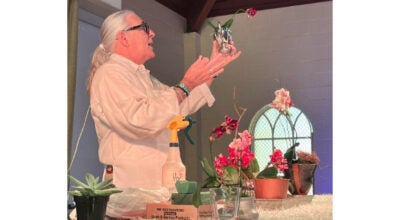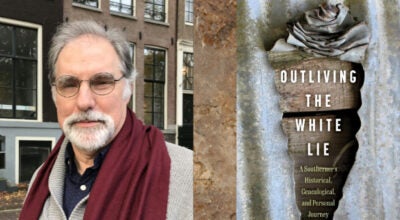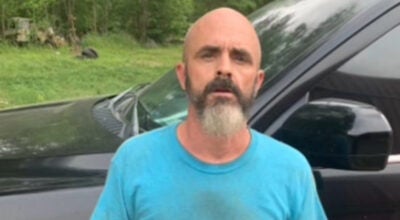Havard’s fate in judge’s hands
Published 12:20 am Thursday, August 17, 2017
NATCHEZ — After three days of testimony regarding a capital murder case originally tried 15 years ago, Circuit Court Judge Forrest “Al” Johnson said Wednesday he faces “one of the most important decisions” of his long career.
The life of a man now on death row hangs on that decision.
Johnson must decide if Jeffrey Havard convicted in 2002 of capital murder in the death of his girlfriend’s 6-month-old daughter deserves a new trial.
Wednesday was the third and final day of the hearing for Johnson to consider the case. The Mississippi Supreme Court ordered the hearing to determine if a new trial is needed due to changes in medical beliefs surrounding shaken baby syndrome.
Johnson said at a minimum, it would take him 2 and a half to 3 months to make a ruling.
“I will tell you I realize this is one of the most important decisions I have faced in 23 years on the bench, if not the most important,” Johnson said. “I don’t take that lightly. I will take my time.”
Havard has been on death row for the past 15 years, but has always maintained his innocence.
Havard contends the baby, Chloe Britt, was injured when he accidentally dropped her while getting her out of a bathtub and struck her head on a toilet.
Prosecutors — and the jury in 2002 — believed what law enforcement and medical examiners told them — that Britt was abused and a victim of shaken baby syndrome.
During the original trial, medical examiners and physicians testified Britt definitively died of shaken baby syndrome and offered no other cause of death.
On Monday and Tuesday pathologists and medical experts testified that many medical experts have changed their beliefs on shaken baby syndrome in recent years.
Wednesday, however, University of Mississippi Medical Center child abuse pediatrician Dr. Scott Benton said the triad of identifiers former state medical examiner Steven Hayne reportedly used to determine Britt’s death are not only diagnostic of shaken baby syndrome.
“The triad is not just bad science,” Benton said. “It is not science.”
Benton said Britt suffered from an impact, but that by itself, the impact evident in the autopsy was not enough to have killed her.
With that admission, Benton differed from the defense’s forensic pathologist experts as he said he believed shaking contributed to Britt’s death.
Benton said he did not believe Britt died without shaking because no severe contusions exist.
Due to the number of injuries, internal and external, Benton said he believes Britt was abused.
“If one were only looking at the external injuries and all the external findings, we would be looking at a child abuse case,” he said. “It is classic. Probably most medical students would recognize it.”
Benton said shaking alone can injure infants, and in that claim he mentioned studies dating back to the 1980s and continuing today.
While he acknowledged some biomedical engineering models suggest shaking cannot generate the force to seriously injury a baby, Benton said the field of biomedical engineering is in its infancy and the force is high enough for injury in more recent models than those shown by the defense.
Benton said animal model studies have been showcasing since the 1980s shaking alone could injure a mammal, specifically adult primates and piglets.
Benton said biomedical engineering data needs to continue to progress before it could reliable in a courtroom setting.
During cross examination, defense attorney Mark Jicka argued the literature on shaken baby syndrome has advanced since the 2002 trial, and pointed out several of Benton’s mentors had written papers and textbooks in which the position on shaken baby syndrome had changed since 2002.
Defense attorney Graham Carner continued that argument in closing.
“This week, not a single witness testified this baby was shaken to death,” Carner said. “They can’t because the science has changed.”
Carner said in similar cases, new trials have been ordered in other states.
Special Assistant Attorney General Jason Davis said it was clear at the time of the trial that many academic articles were available showcasing the science was changing in regard to shaken baby syndrome. Davis cited four Benton mentioned dating back to 1984.
Davis said the state had submitted numerous articles to show that shaken baby syndrome was still accepted by the majority of a broad range of medical specialties, including pediatricians.
If a new trial is granted, Davis said it would not be different from what played out in 2002. The jury heard 15 years ago from the defense that Britt’s death was an accident.
“For the last 72 hours that is the very thing we have heard,” Davis said. “It was an accident, not a homicide.”
Carner said a big change a jury would hear includes testimony from Hayne.
“He said in 2002 it was violent shaking alone,” Carner said. “He said in 2017 it is not violent shaking alone.”
“It would be impossible for that to have been available in 2002 because his opinion changed,” Carner said. “We are not asking the court to declare Jeffrey Havard to be innocent. We are not asking this court to set him free.
“We are asking this court to order a new trial. Put him through the justice system again. That is justice.”





